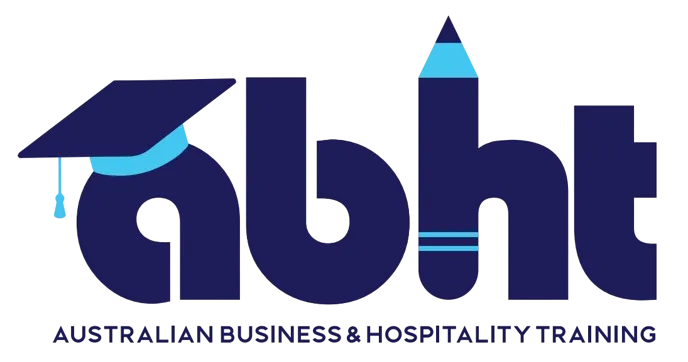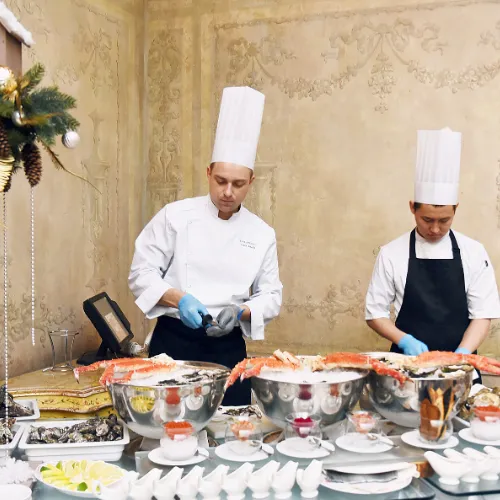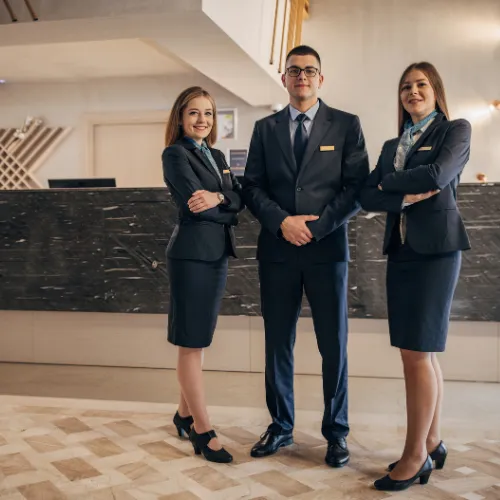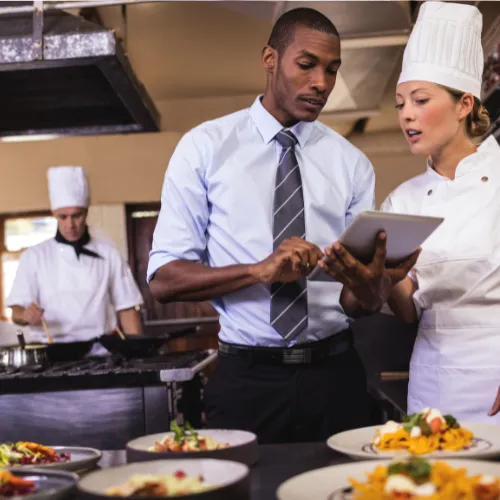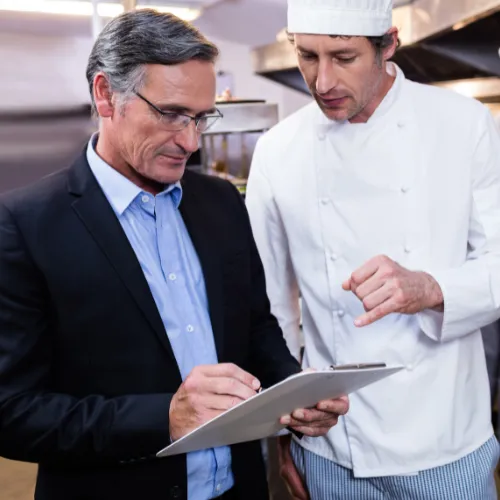SIT50422 - Diploma in Hospitality Management
Commercial Cookery
Course Description
Ready to be the mastermind behind the kitchen doors? Our Diploma of Hospitality Management (Commercial Cookery) is your pathway to becoming a culinary leader, where you’ll go beyond cooking to mastering the art of running a kitchen. You’ll perfect your culinary skills while learning how to manage a kitchen team, design menus, and balance the budget—because running a kitchen isn’t just about great food, it’s about running a smooth operation!
From creating signature dishes to ensuring everything runs like clockwork behind the scenes, this course preps you for a dynamic role as a kitchen manager. If you’re passionate about food and dream of leading your own kitchen brigade, this diploma gives you the skills to make your culinary vision a reality. Time to sharpen those knives and cook up a career at the top of the food chain!
What will you study?
These 28 units combine kitchen skills with leadership and business management expertise. You'll refine your abilities in menu planning, kitchen operations, financial management, and staff supervision while mastering high-level cooking techniques.
Perfect for those aiming to step into head chef or managerial roles, this course prepares you to lead in restaurants, hotels, and other hospitality venues.

Course Enrolment:
Anytime

Entry Requirements:
Nil

Course Duration:
12mths

Location:
ABHT are approved to deliver this course nationally via our online platform and can deliver this training face to face in the workplace throughout Metro & SE QLD.

Study Options:
Training can be delivered face to face in the workplace or in a traditional classroom environment. Students can also study within their own schedule using our online platform or combination of face-to-face and online training.
Dip in Hospitality Management (Commercial Cookery) Training Plan
SITHCCC043* Work effectively as a cook
This unit describes the performance outcomes, skills and knowledge required to work as a cook. It incorporates all aspects of organising, preparing and cooking a variety of food items across different service periods and menu types; using a range of cooking methods and team coordination skills. The unit integrates key technical and organisational skills required by a qualified commercial cook. It brings together the skills and knowledge covered in individual units and focuses on the way they must be applied in a commercial kitchen.The unit applies to cooks working in hospitality and catering organisations. This could include restaurants, educational institutions, health establishments, defence forces, cafeterias, kiosks, cafes, residential caterers, in flight and other transport caterers, and event and function caterers. Menu types may be classical, contemporary or ethnic and service may be formal or informal. It applies to individuals who work under the guidance of more senior chefs. They demonstrate autonomy and judgement to complete routine activities and take limited responsibility in known and stable contexts within established parameters.
SITHCCC027* Prepare dishes using basic methods of cookery
This unit describes the performance outcomes, skills and knowledge required to use a range of basic cookery methods to prepare dishes. The unit applies to cooks working in hospitality and catering organisations. This could include restaurants, educational institutions, health establishments, defence forces, cafeterias, kiosks, cafes, residential caterers, in-flight and other transport caterers, and event and function caterers. It applies to individuals who work with very little independence and under close supervision and guidance of more senior chefs. They follow predefined organisational procedures and report any discrepancies to a higher-level staff member for action.
SITHCCC028*Prepare appetisers and salads
This unit describes the performance outcomes, skills and knowledge required to prepare appetisers and salads following standard recipes. It requires the ability to select and prepare ingredients, and to use relevant equipment and cookery and food storage methods. The unit applies to cooks working in hospitality and catering organisations. This could include restaurants, educational institutions, health establishments, defence forces, cafeterias, kiosks, cafes, residential caterers, in flight and other transport caterers, and event and function caterers. It applies to individuals who work with very little independence and under close supervision and guidance of more senior chefs. They follow predefined organisational procedures and report discrepancies to a higher-level staff member for action.
SITHCCC029* Prepare stocks, sauces and soups
This unit describes the performance outcomes, skills and knowledge required to prepare various stocks, sauces and soups following standard recipes. It requires the ability to select and prepare ingredients, and to use relevant equipment and cookery and food storage methods. The unit applies to cooks working in hospitality and catering organisations. This could include restaurants, educational institutions, health establishments, defence forces, cafeterias, kiosks, cafes, residential caterers, in flight and other transport caterers, and event and function caterers. It applies to individuals who work with very little independence and under close supervision and guidance of more senior chefs. They follow predefined organisational procedures and report any discrepancies to a higher level staff member for action.
SITHCCC030* Prepare vegetable, fruit, eggs and farinaceous dishes
This unit describes the performance outcomes, skills and knowledge required to prepare and cook various vegetable, fruit, egg and farinaceous dishes following standard recipes. It requires the ability to select and prepare ingredients, and to use relevant equipment, cookery and food storage methods. The unit applies to cooks working in hospitality and catering organisations. This could include restaurants, educational institutions, health establishments, defence forces, cafeterias, kiosks, cafes, residential caterers, in flight and other transport caterers, and event and function caterers. It applies to individuals who work with very little independence and under close supervision and guidance of more senior chefs. They follow predefined organisational procedures and report any discrepancies to a higher level staff member for action.
SITHCCC031*Prepare vegetarian and vegan dishes
This unit describes the performance outcomes, skills and knowledge required to prepare and cook various vegetarian and vegan dishes following standard recipes. It requires the ability to select and prepare ingredients, and to use relevant equipment, cookery and food storage methods. The unit applies to cooks working in hospitality and catering organisations. This could include restaurants, educational institutions, health establishments, defence forces, cafeterias, kiosks, cafes, residential caterers, in flight and other transport caterers, and event and function caterers. It applies to individuals who work under the guidance of more senior chefs. They demonstrate autonomy and judgement to complete routine activities and take limited responsibility in known and stable contexts within established parameters.
SITHCCC035* Prepare poultry dishes
This unit describes the performance outcomes, skills and knowledge required to prepare and cook a range of poultry dishes following standard recipes. It requires the ability to select, prepare and portion poultry, and to use relevant equipment, cookery and food storage methods.T he unit applies to cooks working in hospitality and catering organisations. This could include restaurants, educational institutions, health establishments, defence forces, cafeterias, kiosks, cafes, residential caterers, in flight and other transport caterers, and event and function caterers. It applies to individuals who work under the guidance of more senior chefs. They demonstrate autonomy and judgement to complete routine activities and take limited responsibility in known and stable contexts within established parameters.
SITHCCC036* Prepare meat dishes
This unit describes the performance outcomes, skills and knowledge required to prepare and cook a range of meat dishes following standard recipes. It requires the ability to select, prepare and portion meat, and to use relevant equipment, and cookery and food storage methods. The unit applies to cooks working in hospitality and catering organisations. This could include restaurants, educational institutions, health establishments, defence forces, cafeterias, kiosks, cafes, residential caterers, in flight and other transport caterers, and event and function caterers. It applies to individuals who work under the guidance of more senior chefs. They demonstrate autonomy and judgement to complete routine activities and take limited responsibility in known and stable contexts within established parameters.
SITHCCC037* Prepare seafood dishes
This unit describes the performance outcomes, skills and knowledge required to prepare and cook a range of fish and shellfish dishes following standard recipes. It requires the ability to select, prepare and portion seafood, and to use relevant equipment, and cookery and food storage methods. The unit applies to cooks working in hospitality and catering organisations. This could include restaurants, educational institutions, health establishments, defence forces, cafeterias, kiosks, cafes, residential caterers, in flight and other transport caterers, and event and function caterers. It applies to individuals who work under the guidance of more senior chefs. They demonstrate autonomy and judgement to complete routine activities and take limited responsibility in known and stable contexts within established parameters.
SITHCCC038* Produce and serve food for buffets
This unit describes the performance outcomes, skills and knowledge required to produce and present foods for buffets. It requires the ability to cook buffet foods and to present, serve and replenish them throughout the service period. It does not include the overall design, planning and display of buffets which is covered by the unit SITHKOP011 Plan and implement service of buffets. The unit applies to all hospitality and catering organisations that prepare and serve buffet food, including restaurants, hotels, clubs, events and function venues. It applies to individuals who work under the guidance of more senior chefs. They demonstrate autonomy and judgement to complete routine activities and take limited responsibility in known and stable contexts within established parameters.
SITHCCC041* Produce cakes, pastries and breads
This unit describes the performance outcomes, skills and knowledge required to produce cakes, pastries and breads in a commercial kitchen following standard recipes. It requires the ability to select, prepare and portion ingredients; and to use relevant equipment a range of cookery methods to make and decorate cakes, pastries and breads, and food storage methods. It does not cover the specialist skills used by patissiers to produce specialist patisserie products. These are covered in the range of patisserie units coded ‘PAT’. The unit applies to hospitality and catering organisations that produce and serve cakes, pastries and breads, including hotels, restaurants and patisseries. It applies to individuals who work under the guidance of more senior chefs. They demonstrate autonomy and judgement to complete routine activities and take limited responsibility in known and stable contexts within established parameters.
SITHCCC042* Prepare food to meet special dietary requirements
This unit describes the performance outcomes, skills and knowledge required to prepare dishes for people who have special dietary needs for lifestyle, medical or religious reasons. It requires the ability to confirm the dietary requirements of customers, use special recipes, select special ingredients and produce food to satisfy special requirements. This unit does not include recipe planning for special diets which is covered in the unit SITHKOP012 Develop recipes for special dietary requirements. The unit applies to cooks and patissiers working in hospitality and catering organisations. This could include restaurants, educational institutions, health establishments, defence forces, cafeterias, kiosks, cafes, residential caterers, in flight and other transport caterers, and event and function caterers. It applies to individuals who work under the guidance of more senior chefs. They demonstrate autonomy and judgement to complete routine activities and take limited responsibility in known and stable contexts within established parameters.
Food Safety Supervisor
SITXFSA005 Use hygienic practices for food safety
This unit describes the performance outcomes, skills and knowledge required to use personal hygiene practices to prevent contamination of food that might cause food-borne illnesses. It requires the ability to follow predetermined organisational procedures and to identify and control food hazards. The unit applies to all organisations with permanent or temporary kitchen premises or smaller food preparation or bar areas. This includes restaurants, cafes, clubs, hotels, and bars; tour operators; attractions; function, event, exhibition and conference catering; educational institutions; aged care facilities; correctional centres; hospitals; defence forces; cafeterias, kiosks, canteens and fast food outlets; residential catering; in-flight and other transport catering. It applies to food handlers who directly handle food or food contact surfaces such as cutlery, plates and bowls during the course of their daily work activities. This includes cooks, chefs, caterers, kitchen stewards, kitchen hands, bar, and food and beverage attendants, and sometimes room attendants and front office staff. Food handlers must comply with the requirements contained within the Australia New Zealand Food Standards Code. In some States and Territories businesses are required to designate a food safety supervisor who is required to be certified as competent in this unit through a registered training organisation. Food safety legislative and knowledge requirements may differ across borders. Those developing training to support this unit must consult the relevant state or territory food safety authority to determine any accreditation arrangements for courses, trainers and assessors.
SITXFSA006 Participate in safe food handling practices
This unit describes the performance outcomes, skills and knowledge required to handle food safely during the storage, preparation, display, service and disposal of food. It requires the ability to follow predetermined procedures as outlined in a food safety program. The unit applies to all organisations with permanent or temporary kitchen premises or smaller food preparation areas. This includes restaurants, cafes, clubs, and hotels; tour operators; attractions; function, event, exhibition and conference catering; educational institutions; aged care facilities; correctional centres; hospitals; defence forces; cafeterias, kiosks, canteens and fast food outlets; residential catering; in-flight and other transport catering. Safe food handling practices are based on an organisation’s individual food safety program. The program would normally be based on the hazard analysis and critical control points (HACCP) method, but this unit can apply to other food safety systems. It applies to food handlers who directly handle food during the course of their daily work activities. This includes cooks, chefs, caterers, kitchen hands and food and beverage attendants. Food handlers must comply with the requirements contained within the Australia New Zealand Food Standards Code.
SITXFSA008* Develop and implement a food safety program
This unit describes the performance outcomes, skills and knowledge required to develop, implement and evaluate a food safety program for all stages in the food production process, including receipt, storage, preparation, service and disposal of food. It requires the ability to determine program requirements and prepare policies and procedures for other personnel to follow. The unit applies to all organisations with permanent or temporary kitchen premises or smaller food preparation areas. This includes restaurants, cafes, clubs, and hotels; tour operators; attractions; function, event, exhibition and conference catering; educational institutions; aged care facilities; correctional centres; hospitals; defence forces; cafeterias, kiosks, canteens, and fast food outlets; residential catering; in-flight and other transport catering. A food safety program would most commonly be based on the hazard analysis and critical control points (HACCP) method, but this unit can apply to other food safety systems. It applies to senior personnel who work independently and who are responsible for making strategic decisions on establishing and monitoring risk control systems for food related hazards. This could include chefs, kitchen managers, catering managers, fast food store managers and owner-operators of small business catering operations or retail food outlets. In some States and Territories businesses are required to designate a food safety supervisor who is required to be certified as competent in one or more designated units of competency through a registered training organisation.
Kitchen Operations
SITXMGT004 Monitor work operations
This unit describes the performance outcomes, skills and knowledge required to oversee and monitor the quality of day-to-day work. It requires the ability to communicate effectively with team members, plan and organise operational functions, and solve problems. The unit applies to all industry sectors, and to individuals operating at a team leading, supervisory or frontline management level.
SITXFIN009 Manage finances within a budget
This unit describes the performance outcomes, skills and knowledge required to take responsibility for budget management where others may have developed the budget. It requires the ability to interpret budgetary requirements, allocate resources, monitor actual income and expenditure, and report on budgetary deviations. The skills and knowledge for budget development are covered in SITXFIN010 Prepare and monitor budgets. This unit applies to all tourism, travel, hospitality and event sectors. The budget may be for an entire organisation, for a department or for a particular project or activity. It applies to those people who operate independently or with limited guidance from others. This includes supervisors and departmental managers.
SITXFIN010 Prepare and monitor budgets
This unit describes the performance outcomes, skills and knowledge required to analyse financial and other business information to prepare and monitor budgets. It requires the ability to draft and negotiate budgets, identify deviations, and manage the delivery of successful budgetary performance. The unit applies to all tourism, travel, hospitality and event sectors. The budget may be for an entire organisation, for a department or for a particular project or activity. It applies to senior personnel who operate independently or with limited guidance from others and who are responsible for making a range of financial management decisions.
SITXGLC002 Identify and manage legal risks and comply with law
This unit describes the performance outcomes, skills and knowledge required to identify and manage legal risks and comply with laws applicable to specific business operations. It requires the ability to identify legal risks, access and interpret regulatory information, and determine action required to manage legal risks and to comply with applicable laws. The unit applies to legal issues arising in day-to-day business operations in all tourism, travel, hospitality and event sectors. It applies to senior personnel who operate with limited guidance from others and who are responsible for making a range of operational business and legal risk management decisions.
SITHKOP012* Develop recipes for special dietary requirements
This unit describes the performance outcomes, skills and knowledge required to develop recipes for people who have special dietary needs for lifestyle, medical or religious reasons. It requires the ability to identify the dietary requirements of customers, develop recipes to meet those requirements, cost recipes and to monitor and evaluate the success of recipe performance. The unit applies to all hospitality and catering organisations that prepare and serve food. This includes hotels, clubs, restaurants, educational institutions, health establishments, defence forces, cafeterias, kiosks, cafes, residential caterers, in flight and other transport caterers, event and function caterers. It applies to those people who operate independently or with limited guidance from others such as senior cooks, chefs, catering supervisors and managers.
SITHKOP015* Design and cost menus
This unit describes the performance outcomes, skills and knowledge required to design profitable menus for all types of cuisines and food service styles. It requires the ability to identify target markets for the organisation, design menus to meet market preferences, price menu items and to monitor and evaluate the success of menu performance. The unit applies to hospitality and catering organisations and to those people who operate independently and are responsible for making a range of operational and strategic decisions. This includes senior catering managers, and sous, head and executive chefs.
SITXWHS007 Implement and monitor work health and safety practices
This unit describes the performance outcomes, skills and knowledge required to implement predetermined work health, safety and security practices designed, at management level, to ensure a safe workplace. It requires the ability to monitor safe work practices and coordinate consultative arrangements, risk assessments, work health and safety training, and the maintenance of records. The unit applies to all tourism, travel, hospitality and event sectors and to any small, medium or large organisation. It applies to those people who operate independently or with limited guidance from others. This includes supervisors and departmental managers.This unit incorporates the requirement, under state and territory work health and safety (WHS) legislation, for businesses to take a systematic approach to managing the safety of their workers and anyone else in the workplace.
People & Culture
SITXHRM009 Lead and manage people
This unit describes the performance outcomes, skills and knowledge required to lead and manage people individually and in teams, and support and encourage their commitment to the organisation. It requires the ability to lead by example and manage performance through effective leadership. The unit applies to individuals who operate independently and are responsible for leading and motivating people and teams. This includes supervisors, and operational and senior managers.The unit applies to all tourism, travel, hospitality and event sectors.
SITXCCS015 Enhance customer service experiences
This unit describes the performance outcomes, skills and knowledge required to provide professional and personalised customer service experiences. It requires the ability to determine and meet customer preferences, develop customer relationships, respond to difficult service situations and take responsibility for resolving complaints. The unit applies to those who deal directly with customers on a daily basis and who operate independently or with limited guidance from others. It includes senior frontline sales personnel, supervisors and managers who use discretion and judgement to provide quality customer service experiences. This includes individuals working in a range of tourism, travel, hospitality and events contexts.
SITXCCS016 Develop and manage quality customer service practices
This unit describes the performance outcomes, skills and knowledge required to develop, monitor and adjust customer service practices. It requires the ability to consult with colleagues and customers, develop policies and procedures for quality service provision, and manage the delivery of customer service. The unit applies to senior managers who operate independently, have responsibility for others and are responsible for making a range of operational and strategic decisions. This includes individuals working in a range of tourism, travel, hospitality and event contexts and to any small, medium or large organisation.
SITXCOM010 Manage conflict
This unit describes the performance outcomes, skills and knowledge required to resolve complex or escalated complaints and disputes with internal and external customers and colleagues. It requires the ability to use effective conflict resolution techniques and communication skills to manage conflict and develop solutions. It does not cover formal negotiation, counselling or mediation. The unit applies to all tourism, travel, hospitality and event sectors. The unit applies mainly to senior operational personnel, supervisors and managers who operate with some level of independence and use discretion and judgement to resolve conflicts.
SITXHRM008 Roster staff
This unit describes the performance outcomes, skills and knowledge required to develop, administer and communicate staff rosters. It requires the ability to plan rosters according to industrial provisions, operational efficiency requirements, and within wage budgets. This unit applies to individuals responsible for developing staff rosters for situations involving potentially large numbers of staff working across a range of different service periods or shifts. It does not apply to small office environments. It applies to senior personnel who operate independently or with limited guidance from others, including dedicated specialist staff or operational supervisors and managers. The unit applies to all tourism, travel, hospitality and event sectors.
SITXMGT005 Establish and conduct business relationships
This unit describes the performance outcomes, skills and knowledge required to establish and manage positive business relationships. It requires the ability to use high level communication and relationship building skills to conduct formal negotiations and make commercially significant business-to-business agreements. The unit applies to all industry sectors, and to individuals who take responsibility for making decisions about purchasing or marketing activities. They also oversee the maintenance of contracts or agreements. This could include senior operational personnel, sales and marketing personnel, managers or owner-operators of small businesses. Agreements may relate to corporate accounts, service contracts, agency agreements, venue contracts, rate negotiations, preferred product agreements, supply agreements and marketing agreements.
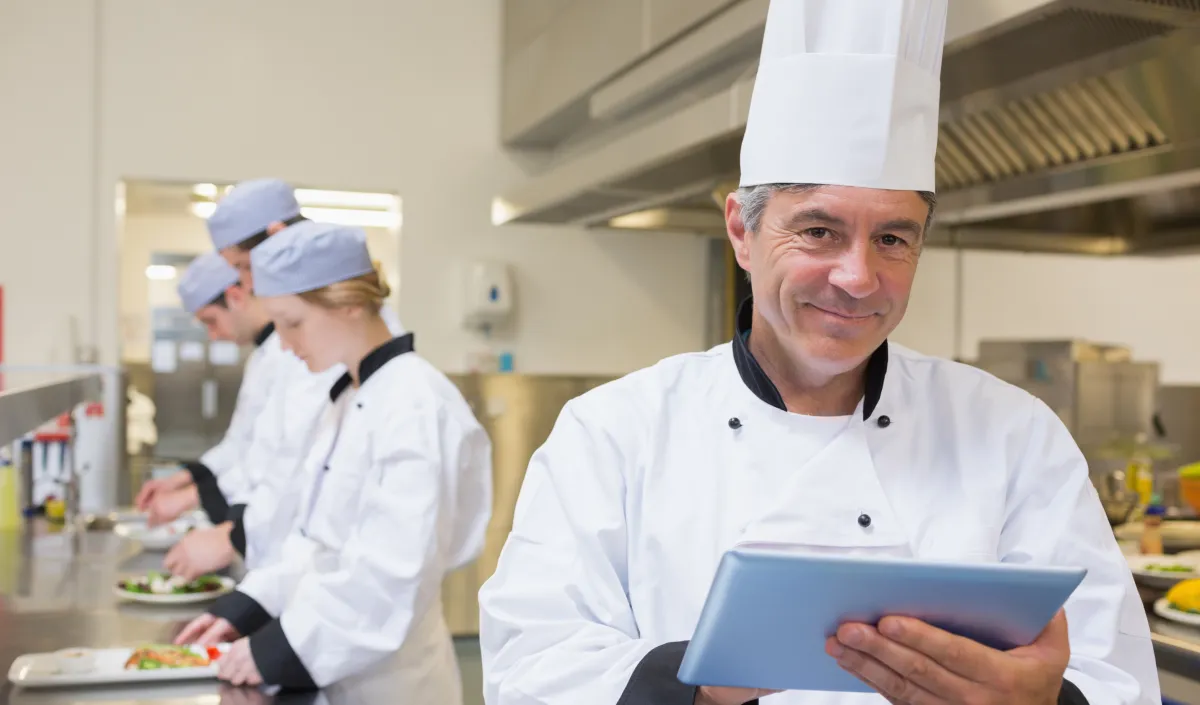
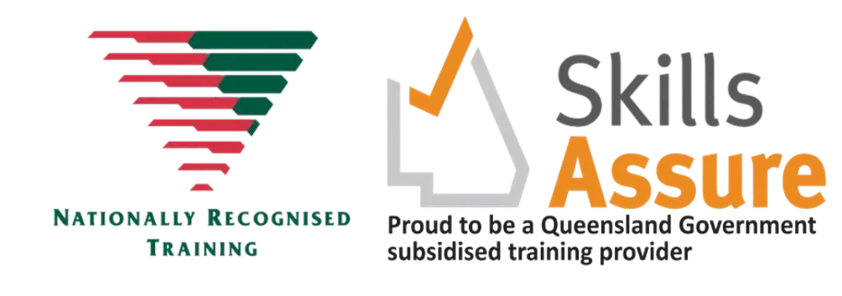
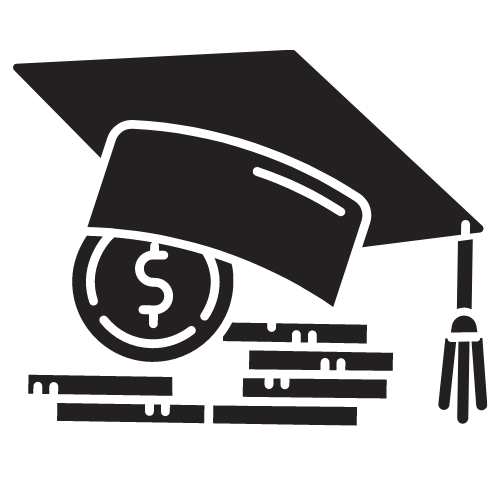
Course Fees:
There are two available enrolment options to choose from for this course:

Course Fees:
There are five available enrolment options to choose from for this course:
Career Boost - General Training
Career Boost aims to take a person’s career to the next level, enabling them to grow and apply their skills to existing or new job roles and to support productivity growth and
workplace innovation. The program delivers training to help
individuals develop the higher-level skills needed to secure employment, advance their careers, or progress to further
education and training to undertake.
Please Note: The funding provided by Queensland Government doesn't cover the full cost of training.
We are required to charge co-contribution fees for this course Fees are charged and collected at the Unit of Competency rate.
• Non-Concessional Fees: $1 per unit
• Concessional Fees: $0.70 per unit
The total co-contribution fees for the Diploma of Hospitality (Commercial Cookery)
Non-Concessional: $28.00
Concessional: $19.60
Fee for Service:
Diploma in Hospitality Management (Commercial Cookery) - $6440.00
Payment Structure for Courses over $1500.00
We make paying for your course simple and manageable.
Courses under $1,500: Pay upfront and in full at enrolment.
Courses over $1,500 A simple payment plan can arranged which will include a $1500 deposit on enrolment.
We also offer payment plans via Ezidebit direct debit, making it even easier to spread the cost of your course.
📌 Ezidebit terms, conditions, and fees apply. Full details will be provided during the enrolment process.
SIT50422 - Diploma in Hospitality Management
Commercial Cookery
Course Description
Ready to be the mastermind behind the kitchen doors? Our Diploma of Hospitality Management (Commercial Cookery) is your pathway to becoming a culinary leader, where you’ll go beyond cooking to mastering the art of running a kitchen. You’ll perfect your culinary skills while learning how to manage a kitchen team, design menus, and balance the budget—because running a kitchen isn’t just about great food, it’s about running a smooth operation!
From creating signature dishes to ensuring everything runs like clockwork behind the scenes, this course preps you for a dynamic role as a kitchen manager. If you’re passionate about food and dream of leading your own kitchen brigade, this diploma gives you the skills to make your culinary vision a reality. Time to sharpen those knives and cook up a career at the top of the food chain!
What will you study?
These 28 units combine kitchen skills with leadership and business management expertise. You'll refine your abilities in menu planning, kitchen operations, financial management, and staff supervision while mastering high-level cooking techniques.
Perfect for those aiming to step into head chef or managerial roles, this course prepares you to lead in restaurants, hotels, and other hospitality venues.

Course Enrolment:
Anytime

Entry Requirements:
Nil

Course Duration:
12mths

Location:
ABHT are approved to deliver this course nationally via our online platform and can deliver this training face to face in the workplace throughout Metro & SE QLD.

Study Options:
Training can be delivered face to face in the workplace or in a traditional classroom environment. Students can also study within their own schedule using our online platform or combination of face-to-face and online training.
Diploma in Hospitality Management (Commercial Cookery) Training Plan
SITHCCC043* Work effectively as a cook
This unit describes the performance outcomes, skills and knowledge required to work as a cook. It incorporates all aspects of organising, preparing and cooking a variety of food items across different service periods and menu types; using a range of cooking methods and team coordination skills. The unit integrates key technical and organisational skills required by a qualified commercial cook. It brings together the skills and knowledge covered in individual units and focuses on the way they must be applied in a commercial kitchen.The unit applies to cooks working in hospitality and catering organisations. This could include restaurants, educational institutions, health establishments, defence forces, cafeterias, kiosks, cafes, residential caterers, in flight and other transport caterers, and event and function caterers. Menu types may be classical, contemporary or ethnic and service may be formal or informal. It applies to individuals who work under the guidance of more senior chefs. They demonstrate autonomy and judgement to complete routine activities and take limited responsibility in known and stable contexts within established parameters.
SITHCCC027* Prepare dishes using basic methods of cookery
This unit describes the performance outcomes, skills and knowledge required to use a range of basic cookery methods to prepare dishes. The unit applies to cooks working in hospitality and catering organisations. This could include restaurants, educational institutions, health establishments, defence forces, cafeterias, kiosks, cafes, residential caterers, in-flight and other transport caterers, and event and function caterers. It applies to individuals who work with very little independence and under close supervision and guidance of more senior chefs. They follow predefined organisational procedures and report any discrepancies to a higher-level staff member for action.
SITHCCC028*Prepare appetisers and salads
This unit describes the performance outcomes, skills and knowledge required to prepare appetisers and salads following standard recipes. It requires the ability to select and prepare ingredients, and to use relevant equipment and cookery and food storage methods. The unit applies to cooks working in hospitality and catering organisations. This could include restaurants, educational institutions, health establishments, defence forces, cafeterias, kiosks, cafes, residential caterers, in flight and other transport caterers, and event and function caterers. It applies to individuals who work with very little independence and under close supervision and guidance of more senior chefs. They follow predefined organisational procedures and report discrepancies to a higher-level staff member for action.
SITHCCC029* Prepare stocks, sauces and soups
This unit describes the performance outcomes, skills and knowledge required to prepare various stocks, sauces and soups following standard recipes. It requires the ability to select and prepare ingredients, and to use relevant equipment and cookery and food storage methods. The unit applies to cooks working in hospitality and catering organisations. This could include restaurants, educational institutions, health establishments, defence forces, cafeterias, kiosks, cafes, residential caterers, in flight and other transport caterers, and event and function caterers. It applies to individuals who work with very little independence and under close supervision and guidance of more senior chefs. They follow predefined organisational procedures and report any discrepancies to a higher level staff member for action.
SITHCCC030* Prepare vegetable, fruit, eggs and farinaceous dishes
This unit describes the performance outcomes, skills and knowledge required to prepare and cook various vegetable, fruit, egg and farinaceous dishes following standard recipes. It requires the ability to select and prepare ingredients, and to use relevant equipment, cookery and food storage methods. The unit applies to cooks working in hospitality and catering organisations. This could include restaurants, educational institutions, health establishments, defence forces, cafeterias, kiosks, cafes, residential caterers, in flight and other transport caterers, and event and function caterers. It applies to individuals who work with very little independence and under close supervision and guidance of more senior chefs. They follow predefined organisational procedures and report any discrepancies to a higher level staff member for action.
SITHCCC031*Prepare vegetarian and vegan dishes
This unit describes the performance outcomes, skills and knowledge required to prepare and cook various vegetarian and vegan dishes following standard recipes. It requires the ability to select and prepare ingredients, and to use relevant equipment, cookery and food storage methods. The unit applies to cooks working in hospitality and catering organisations. This could include restaurants, educational institutions, health establishments, defence forces, cafeterias, kiosks, cafes, residential caterers, in flight and other transport caterers, and event and function caterers. It applies to individuals who work under the guidance of more senior chefs. They demonstrate autonomy and judgement to complete routine activities and take limited responsibility in known and stable contexts within established parameters.
SITHCCC035* Prepare poultry dishes
This unit describes the performance outcomes, skills and knowledge required to prepare and cook a range of poultry dishes following standard recipes. It requires the ability to select, prepare and portion poultry, and to use relevant equipment, cookery and food storage methods.T he unit applies to cooks working in hospitality and catering organisations. This could include restaurants, educational institutions, health establishments, defence forces, cafeterias, kiosks, cafes, residential caterers, in flight and other transport caterers, and event and function caterers. It applies to individuals who work under the guidance of more senior chefs. They demonstrate autonomy and judgement to complete routine activities and take limited responsibility in known and stable contexts within established parameters.
SITHCCC036* Prepare meat dishes
This unit describes the performance outcomes, skills and knowledge required to prepare and cook a range of meat dishes following standard recipes. It requires the ability to select, prepare and portion meat, and to use relevant equipment, and cookery and food storage methods. The unit applies to cooks working in hospitality and catering organisations. This could include restaurants, educational institutions, health establishments, defence forces, cafeterias, kiosks, cafes, residential caterers, in flight and other transport caterers, and event and function caterers. It applies to individuals who work under the guidance of more senior chefs. They demonstrate autonomy and judgement to complete routine activities and take limited responsibility in known and stable contexts within established parameters.
SITHCCC037* Prepare seafood dishes
This unit describes the performance outcomes, skills and knowledge required to prepare and cook a range of fish and shellfish dishes following standard recipes. It requires the ability to select, prepare and portion seafood, and to use relevant equipment, and cookery and food storage methods. The unit applies to cooks working in hospitality and catering organisations. This could include restaurants, educational institutions, health establishments, defence forces, cafeterias, kiosks, cafes, residential caterers, in flight and other transport caterers, and event and function caterers. It applies to individuals who work under the guidance of more senior chefs. They demonstrate autonomy and judgement to complete routine activities and take limited responsibility in known and stable contexts within established parameters.
SITHCCC038* Produce and serve food for buffets
This unit describes the performance outcomes, skills and knowledge required to produce and present foods for buffets. It requires the ability to cook buffet foods and to present, serve and replenish them throughout the service period. It does not include the overall design, planning and display of buffets which is covered by the unit SITHKOP011 Plan and implement service of buffets. The unit applies to all hospitality and catering organisations that prepare and serve buffet food, including restaurants, hotels, clubs, events and function venues. It applies to individuals who work under the guidance of more senior chefs. They demonstrate autonomy and judgement to complete routine activities and take limited responsibility in known and stable contexts within established parameters.
SITHCCC041* Produce cakes, pastries and breads
This unit describes the performance outcomes, skills and knowledge required to produce cakes, pastries and breads in a commercial kitchen following standard recipes. It requires the ability to select, prepare and portion ingredients; and to use relevant equipment a range of cookery methods to make and decorate cakes, pastries and breads, and food storage methods. It does not cover the specialist skills used by patissiers to produce specialist patisserie products. These are covered in the range of patisserie units coded ‘PAT’. The unit applies to hospitality and catering organisations that produce and serve cakes, pastries and breads, including hotels, restaurants and patisseries. It applies to individuals who work under the guidance of more senior chefs. They demonstrate autonomy and judgement to complete routine activities and take limited responsibility in known and stable contexts within established parameters.
SITHCCC042* Prepare food to meet special dietary requirements
This unit describes the performance outcomes, skills and knowledge required to prepare dishes for people who have special dietary needs for lifestyle, medical or religious reasons. It requires the ability to confirm the dietary requirements of customers, use special recipes, select special ingredients and produce food to satisfy special requirements. This unit does not include recipe planning for special diets which is covered in the unit SITHKOP012 Develop recipes for special dietary requirements. The unit applies to cooks and patissiers working in hospitality and catering organisations. This could include restaurants, educational institutions, health establishments, defence forces, cafeterias, kiosks, cafes, residential caterers, in flight and other transport caterers, and event and function caterers. It applies to individuals who work under the guidance of more senior chefs. They demonstrate autonomy and judgement to complete routine activities and take limited responsibility in known and stable contexts within established parameters.
Food Safety Supervisor
SITXFSA005 Use hygienic practices for food safety
This unit describes the performance outcomes, skills and knowledge required to use personal hygiene practices to prevent contamination of food that might cause food-borne illnesses. It requires the ability to follow predetermined organisational procedures and to identify and control food hazards. The unit applies to all organisations with permanent or temporary kitchen premises or smaller food preparation or bar areas. This includes restaurants, cafes, clubs, hotels, and bars; tour operators; attractions; function, event, exhibition and conference catering; educational institutions; aged care facilities; correctional centres; hospitals; defence forces; cafeterias, kiosks, canteens and fast food outlets; residential catering; in-flight and other transport catering. It applies to food handlers who directly handle food or food contact surfaces such as cutlery, plates and bowls during the course of their daily work activities. This includes cooks, chefs, caterers, kitchen stewards, kitchen hands, bar, and food and beverage attendants, and sometimes room attendants and front office staff. Food handlers must comply with the requirements contained within the Australia New Zealand Food Standards Code. In some States and Territories businesses are required to designate a food safety supervisor who is required to be certified as competent in this unit through a registered training organisation. Food safety legislative and knowledge requirements may differ across borders. Those developing training to support this unit must consult the relevant state or territory food safety authority to determine any accreditation arrangements for courses, trainers and assessors.
SITXFSA006 Participate in safe food handling practices
This unit describes the performance outcomes, skills and knowledge required to handle food safely during the storage, preparation, display, service and disposal of food. It requires the ability to follow predetermined procedures as outlined in a food safety program. The unit applies to all organisations with permanent or temporary kitchen premises or smaller food preparation areas. This includes restaurants, cafes, clubs, and hotels; tour operators; attractions; function, event, exhibition and conference catering; educational institutions; aged care facilities; correctional centres; hospitals; defence forces; cafeterias, kiosks, canteens and fast food outlets; residential catering; in-flight and other transport catering. Safe food handling practices are based on an organisation’s individual food safety program. The program would normally be based on the hazard analysis and critical control points (HACCP) method, but this unit can apply to other food safety systems. It applies to food handlers who directly handle food during the course of their daily work activities. This includes cooks, chefs, caterers, kitchen hands and food and beverage attendants. Food handlers must comply with the requirements contained within the Australia New Zealand Food Standards Code.
SITXFSA008* Develop and implement a food safety program
This unit describes the performance outcomes, skills and knowledge required to develop, implement and evaluate a food safety program for all stages in the food production process, including receipt, storage, preparation, service and disposal of food. It requires the ability to determine program requirements and prepare policies and procedures for other personnel to follow. The unit applies to all organisations with permanent or temporary kitchen premises or smaller food preparation areas. This includes restaurants, cafes, clubs, and hotels; tour operators; attractions; function, event, exhibition and conference catering; educational institutions; aged care facilities; correctional centres; hospitals; defence forces; cafeterias, kiosks, canteens, and fast food outlets; residential catering; in-flight and other transport catering. A food safety program would most commonly be based on the hazard analysis and critical control points (HACCP) method, but this unit can apply to other food safety systems. It applies to senior personnel who work independently and who are responsible for making strategic decisions on establishing and monitoring risk control systems for food related hazards. This could include chefs, kitchen managers, catering managers, fast food store managers and owner-operators of small business catering operations or retail food outlets. In some States and Territories businesses are required to designate a food safety supervisor who is required to be certified as competent in one or more designated units of competency through a registered training organisation.
Kitchen Operations
SITXMGT004 Monitor work operations
This unit describes the performance outcomes, skills and knowledge required to oversee and monitor the quality of day-to-day work. It requires the ability to communicate effectively with team members, plan and organise operational functions, and solve problems. The unit applies to all industry sectors, and to individuals operating at a team leading, supervisory or frontline management level.
SITXFIN009 Manage finances within a budget
This unit describes the performance outcomes, skills and knowledge required to take responsibility for budget management where others may have developed the budget. It requires the ability to interpret budgetary requirements, allocate resources, monitor actual income and expenditure, and report on budgetary deviations. The skills and knowledge for budget development are covered in SITXFIN010 Prepare and monitor budgets. This unit applies to all tourism, travel, hospitality and event sectors. The budget may be for an entire organisation, for a department or for a particular project or activity. It applies to those people who operate independently or with limited guidance from others. This includes supervisors and departmental managers.
SITXFIN010 Prepare and monitor budgets
This unit describes the performance outcomes, skills and knowledge required to analyse financial and other business information to prepare and monitor budgets. It requires the ability to draft and negotiate budgets, identify deviations, and manage the delivery of successful budgetary performance. The unit applies to all tourism, travel, hospitality and event sectors. The budget may be for an entire organisation, for a department or for a particular project or activity. It applies to senior personnel who operate independently or with limited guidance from others and who are responsible for making a range of financial management decisions.
SITXGLC002 Identify and manage legal risks and comply with law
This unit describes the performance outcomes, skills and knowledge required to identify and manage legal risks and comply with laws applicable to specific business operations. It requires the ability to identify legal risks, access and interpret regulatory information, and determine action required to manage legal risks and to comply with applicable laws. The unit applies to legal issues arising in day-to-day business operations in all tourism, travel, hospitality and event sectors. It applies to senior personnel who operate with limited guidance from others and who are responsible for making a range of operational business and legal risk management decisions.
SITHKOP012* Develop recipes for special dietary requirements
This unit describes the performance outcomes, skills and knowledge required to develop recipes for people who have special dietary needs for lifestyle, medical or religious reasons. It requires the ability to identify the dietary requirements of customers, develop recipes to meet those requirements, cost recipes and to monitor and evaluate the success of recipe performance. The unit applies to all hospitality and catering organisations that prepare and serve food. This includes hotels, clubs, restaurants, educational institutions, health establishments, defence forces, cafeterias, kiosks, cafes, residential caterers, in flight and other transport caterers, event and function caterers. It applies to those people who operate independently or with limited guidance from others such as senior cooks, chefs, catering supervisors and managers.
SITHKOP015* Design and cost menus
This unit describes the performance outcomes, skills and knowledge required to design profitable menus for all types of cuisines and food service styles. It requires the ability to identify target markets for the organisation, design menus to meet market preferences, price menu items and to monitor and evaluate the success of menu performance. The unit applies to hospitality and catering organisations and to those people who operate independently and are responsible for making a range of operational and strategic decisions. This includes senior catering managers, and sous, head and executive chefs.
SITXWHS007 Implement and monitor work health and safety practices
This unit describes the performance outcomes, skills and knowledge required to implement predetermined work health, safety and security practices designed, at management level, to ensure a safe workplace. It requires the ability to monitor safe work practices and coordinate consultative arrangements, risk assessments, work health and safety training, and the maintenance of records. The unit applies to all tourism, travel, hospitality and event sectors and to any small, medium or large organisation. It applies to those people who operate independently or with limited guidance from others. This includes supervisors and departmental managers.This unit incorporates the requirement, under state and territory work health and safety (WHS) legislation, for businesses to take a systematic approach to managing the safety of their workers and anyone else in the workplace.
People & Culture
SITXHRM009 Lead and manage people
This unit describes the performance outcomes, skills and knowledge required to lead and manage people individually and in teams, and support and encourage their commitment to the organisation. It requires the ability to lead by example and manage performance through effective leadership. The unit applies to individuals who operate independently and are responsible for leading and motivating people and teams. This includes supervisors, and operational and senior managers.The unit applies to all tourism, travel, hospitality and event sectors.
SITXCCS015 Enhance customer service experiences
This unit describes the performance outcomes, skills and knowledge required to provide professional and personalised customer service experiences. It requires the ability to determine and meet customer preferences, develop customer relationships, respond to difficult service situations and take responsibility for resolving complaints. The unit applies to those who deal directly with customers on a daily basis and who operate independently or with limited guidance from others. It includes senior frontline sales personnel, supervisors and managers who use discretion and judgement to provide quality customer service experiences. This includes individuals working in a range of tourism, travel, hospitality and events contexts.
SITXCCS016 Develop and manage quality customer service practices
This unit describes the performance outcomes, skills and knowledge required to develop, monitor and adjust customer service practices. It requires the ability to consult with colleagues and customers, develop policies and procedures for quality service provision, and manage the delivery of customer service. The unit applies to senior managers who operate independently, have responsibility for others and are responsible for making a range of operational and strategic decisions. This includes individuals working in a range of tourism, travel, hospitality and event contexts and to any small, medium or large organisation.
SITXCOM010 Manage conflict
This unit describes the performance outcomes, skills and knowledge required to resolve complex or escalated complaints and disputes with internal and external customers and colleagues. It requires the ability to use effective conflict resolution techniques and communication skills to manage conflict and develop solutions. It does not cover formal negotiation, counselling or mediation. The unit applies to all tourism, travel, hospitality and event sectors. The unit applies mainly to senior operational personnel, supervisors and managers who operate with some level of independence and use discretion and judgement to resolve conflicts.
SITXHRM008 Roster staff
This unit describes the performance outcomes, skills and knowledge required to develop, administer and communicate staff rosters. It requires the ability to plan rosters according to industrial provisions, operational efficiency requirements, and within wage budgets. This unit applies to individuals responsible for developing staff rosters for situations involving potentially large numbers of staff working across a range of different service periods or shifts. It does not apply to small office environments. It applies to senior personnel who operate independently or with limited guidance from others, including dedicated specialist staff or operational supervisors and managers. The unit applies to all tourism, travel, hospitality and event sectors.
SITXMGT005 Establish and conduct business relationships
This unit describes the performance outcomes, skills and knowledge required to establish and manage positive business relationships. It requires the ability to use high level communication and relationship building skills to conduct formal negotiations and make commercially significant business-to-business agreements. The unit applies to all industry sectors, and to individuals who take responsibility for making decisions about purchasing or marketing activities. They also oversee the maintenance of contracts or agreements. This could include senior operational personnel, sales and marketing personnel, managers or owner-operators of small businesses. Agreements may relate to corporate accounts, service contracts, agency agreements, venue contracts, rate negotiations, preferred product agreements, supply agreements and marketing agreements.



Course Fees:
There are two available enrolment options to choose from for this course:
Career Boost - General Training
Career Boost aims to take a person’s career to the next level, enabling them to grow and apply their skills to existing or new job roles and to support productivity growth and
workplace innovation. The program delivers training to help
individuals develop the higher-level skills needed to secure employment, advance their careers, or progress to further
education and training to undertake.
Please Note: The funding provided by Queensland Government doesn't cover the full cost of training.
We are required to charge co-contribution fees for this course Fees are charged and collected at the Unit of Competency rate.
• Non-Concessional Fees: $1 per unit
• Concessional Fees: $0.70 per unit
The total co-contribution fees for the Diploma of Hospitality (Commercial Cookery)
Non-Concessional: $28.00
Concessional: $19.60
Fee for Service:
Diploma in Hospitality Management (Commercial Cookery) - $6440.00
Payment Structure for Courses over $1500.00
We make paying for your course simple and manageable.
Courses under $1,500: Pay upfront and in full at enrolment.
Courses over $1,500 A simple payment plan can arranged which will include a $1500 deposit on enrolment.
We also offer payment plans via Ezidebit direct debit, making it even easier to spread the cost of your course.
📌 Ezidebit terms, conditions, and fees apply. Full details will be provided during the enrolment process.
Career Pathway
Career Pathway
Graduates of the Diploma of Hospitality Management are equipped to oversee operations, lead teams, and drive business success in a range of hospitality settings. This qualification also opens doors to senior management opportunities or further study in business and hospitality leadership.
Students who successfully complete a Diploma iGraduates of the Diploma of Hospitality Management are equipped to oversee operations, lead teams, and drive business success in a range of hospitality settings. This qualification also opens doors to senior management opportunities or further study in business and hospitality leadership.
Ready to enrol?
Ready to enrol?
Register your interest
Fill in our expression of interest form here or call (07) 3117 9722
Eligibility Check
We will check your are eligible for Government funded training.
Enrolment Call
We call you to discuss your enrolment, eligibility for funding and training plan.
We will also confirm course costs and arrange payment or a payment plan
Online Enrolment Form
We will send you the link to our online enrolment, where you can upload your ID and submit all the details required.


Get in touch with us
Ready to connect with us?
We’re just a message away and can’t wait to hear from you!
Whether you have questions, need assistance, or just want to stay in touch, reach out and send us a message through our contact form, give us a call, or drop us an email. Our friendly team is here to help and make your experience awesome. So don’t be shy—let’s get the conversation started! 📞💌✨
Send us a message
More
Follow us
Contact Us
(07) 3117 9722
Level 2. 14 Smith Street
Mooloolaba QLD 4557
Monday to Friday
8.30am to 4.30pm
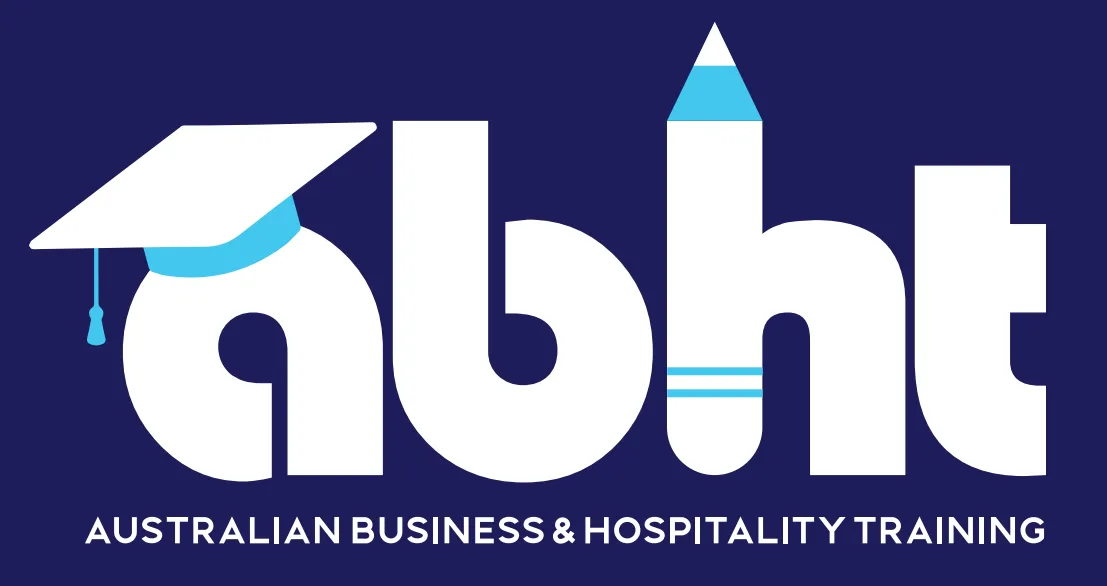
Acknowledgement of Country

In the spirit of reconciliation ABHT acknowledges the Traditional Custodians of Country throughout Australia and their connections to land, sea and community.
We pay our respect to their Elders past and present and extend that respect to all Aboriginal and Torres Strait Islander peoples today.
© Copyright 2026. Australian Business & Hospitality Training. All rights reserved. RTO#31983
